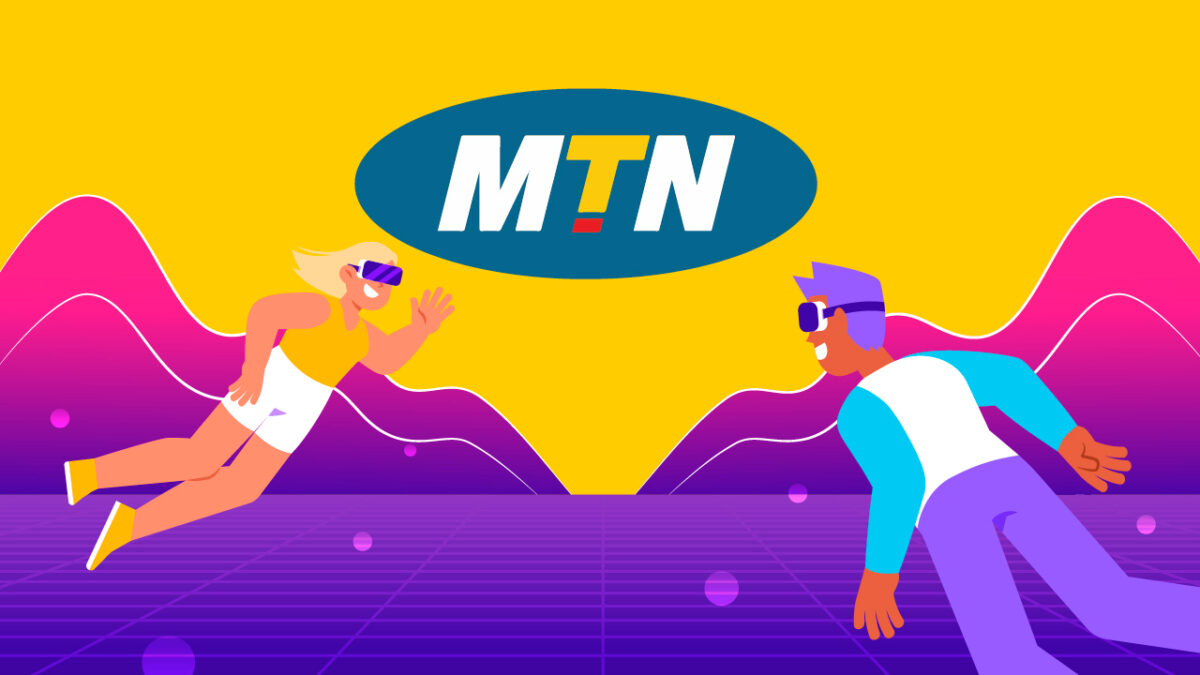MTN Group, Africa’s largest mobile network operator, has become the first corporation on the continent to own digital land in the metaverse, a virtual reality realm.
With the purchase of 144 plots of land in Africarare, South Africa’s first metaverse, MTN has joined a long list of firms betting big on the metaverse, including Google, Microsoft, and Shopify. Ubuntuland, a virtual land modeled after the African scenery in Africarare, is where the land is located.
Africarare was established in October 2021 with the goal of bringing African creativity to the virtual world. The Milla Gallery in Ubuntuland hosted the event, which featured non-fungible tokens (NFTs) created by South African contemporary artist Norman Catherine. The NFTs were quickly sold out, with a $53,000 price tag.
MTN’s move into the metaverse could be the next step in its technological transformation. The telco was redesigned by replacing its logo with plain black lettering in a black-rimmed oval, rather than the popular white MTN writing in a blue oval-shaped rim.
The rebranding is “aligned to our transformation from a telecoms firm to a technology organization,” according to MTN Group Chief Sustainability and Corporate Affairs Officer Nompilo Morafo.
In Ethereum-powered Ubuntuland, there are approximately 200,000 plots of land that are positioned and valued according to a tiered value structure.
Mic Mann, a co-founder of the metaverse, told Newzroom Afrika, a 24-hour digital satellite television news program in South Africa, that he and his team had been working on it for six months before it opened.
“The NFT markets and metaverses have witnessed tremendous growth in the United States, Asia, and Europe. However, little has come out of Africa, and we believe this is an excellent opportunity for Africa to participate in this new world.”
He compared the metaverse to a video game, claiming that gamers had been exploring it long before it was a catchphrase.
“In games like Minecraft, they socialize with their pals by purchasing virtual products and virtual assets.”
The metaverse, on the other hand, has evolved dramatically; it is now blockchain and crypto-enabled, allowing virtual assets to be brought into the real world.
Ubuntuland functions in this manner; $UBUNTU, the company’s metaverse coin, may be used to buy land and art, as well as rent out conference rooms. M&C Saatchi Abel, another South African marketing firm, bought land on Ubuntuland. To engage with global partners, the agency established a metaverse office.
One would question why Africa’s largest telecom provider is joining the sector, given that virtual meetings and art and fashion shows are taking place there.
MTN’s Group Executive for Marketing, Bernice Samuels, said the move was part of the company’s Ambition 2025 strategy, which is centered on “leveraging trends that magnify consumer’s digital experiences and engagement,” according to a news statement on the company’s website.
Though the term “metaverse” is frequently used on the Internet, it is still a relatively new concept in many parts of the world.
Derya Matras, Facebook’s Vice President for Africa, said that while the metaverse has the potential to open up tremendous economic opportunities for the continent, the connectivity isn’t yet there.
“Obviously, the metaverse isn’t there yet, and putting it all together as an industry will take a good ten years,” she said.
If MTN isn’t becoming mainstream anytime soon, why is it infiltrating the metaverse? The telecom behemoth’s branding will be more about what it does to complete its transformation from telco to IT than what it wears.
While the term “metaverse” has gained popularity on the Internet, it will take well over a decade for it to become widely accepted. Then there’s the question of why MTN decided to enter the metaverse as part of their tech rebranding campaign.
MTN’s dominance as a telecommunications juggernaut has already been established, and its recent move shows that the business is eager to shed its telco skin and start flexing its fintech muscles.
Some of the continent’s most well-known fintech startups, such as Flutterwave, Chipper Cash, and Paystack, have a brand positioning that screams tech; given their level of success, it’s safe to assume that positioning pays off.
MTN said in November of last year that it had received preliminary approval to establish payment service banks (PSBs) in Nigeria, one of Africa’s major economies.
